
Health rule: Get 8 hours of sleep
The health benefits of sleep are well documented, and range from energy and alertness to the ability to fight off illness. But even as your doctor extolls the virtues of a strict bedtime routine followed by at least seven hours of sleep, he or she may be seriously sleepy. According to Dr. Marisa C. Weiss, doctors are often sleep deprived because the lines between work and personal time have blurred, as a result of on-call responsibilities and email and phone messages from patients, on top of the need to keep abreast of medical advances. “Sleep is frequently shortened, disrupted and hard to protect, Dr. Weiss told The Wall Street Journal. The good news is that if you’re sleep deprived during the week, research shows that you can pay back some of your sleep debt over the weekend. (Watch out for these 42 strange symptoms that can signal a serious disease.)

Health rule: Don’t skip the placebo pills
Most doctors won’t officially give permission to skip your period by throwing away the placebo pills in your birth control pack, but according to research from Mayo Clinic, if you’re healthy enough to be taking birth control pills, you’re healthy enough to skip your period. (And there’s no biological reason to have a period anyway.) While many doctors opt to skip their own periods, they won’t suggest that you do it because not having a period could make it difficult to tell if you’re pregnant. (Here are 13 things you need to know about birth control pills if you don’t want to get pregnant—or do?)

Health rule: Don’t Google your symptoms
If you head straight to Google to investigate every rash, bump, or headache and then report back to your doctors, you’re likely driving them crazy. Many innocuous symptoms are associated with serious conditions, and relying on Doctor Google could leave you with a case of cyberchondria. Plus, all of that Googling means more patients filling doctors’ waiting rooms for minor health issues that don’t require medical treatment. But while doctors will discourage patients from Googling, a 2011 study found that they don’t take their own advice. In fact, researchers found that 46 percent of doctors search online for information used to diagnose and treat patients. Of those doctors, 63 percent reported changing a diagnosis based on information found through online searches. (Here’s how to know whether you can trust the health advice you found on the web.)
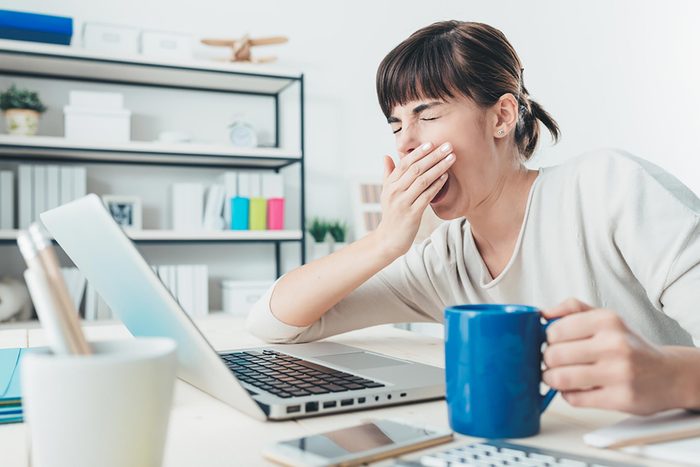
Health rule: Don’t replace sleep with caffeine
There’s no substitute for a good night’s sleep, but many of us rely on caffeine for an eye-opening boost on a regular basis. Doctors are no different. A 2015 study reported in the British Medical Journal found that of the 84 percent of doctors in the study who consumed coffee, most did so to manage fatigue and feel more alert. According to the Mayo Clinic, up to 400 milligrams (mg) of caffeine, or 4 cups of coffee, seems to be the safe limit for most healthy adults.

Health rule: Avoid stress
Studies have shown links between stress and numerous health conditions, including obesity, heart disease, diabetes, and asthma. (These are the silent signs that stress is making you sick.) While it’s evident that stress has a harmful effect on health, doctors are notoriously bad at following their own advice when it comes to stress reduction. “We tell our patients to avoid stress, to not work too hard, to balance their professional and personal lives. Yet many of us who dole out this advice completely ignore it ourselves. We offer this advice because it is probably correct. We ignore it because it is damn hard to follow,” said Robert M. Wachter, MD, professor and associate chairman of the department of medicine at the University of California, San Francisco in an interview with The Wall Street Journal.
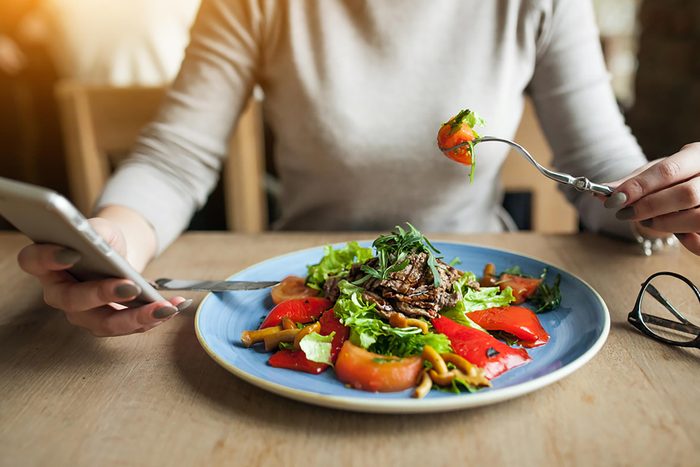
Health rule: Eat mindfully
Mindful eating means clearing away distractions to focus on the tastes, textures and colors of food, in order to better appreciate the food we eat and to register when we’re full. Mindful eating is key to moderating food intake and avoiding auto-pilot eating, but it requires making mealtime an event apart from other activities. “I am a multi-tasker when eating, which isn’t particularly mindful. I’m eating a sandwich right now while answering emails. I would generally discourage clients from eating while doing other things both to have a more joyful experience of the food and to pay attention to what their body is asking them to eat. But hey, I have two kids and it feels urgent to get things done efficiently,” says Katie Playfair, LPC.
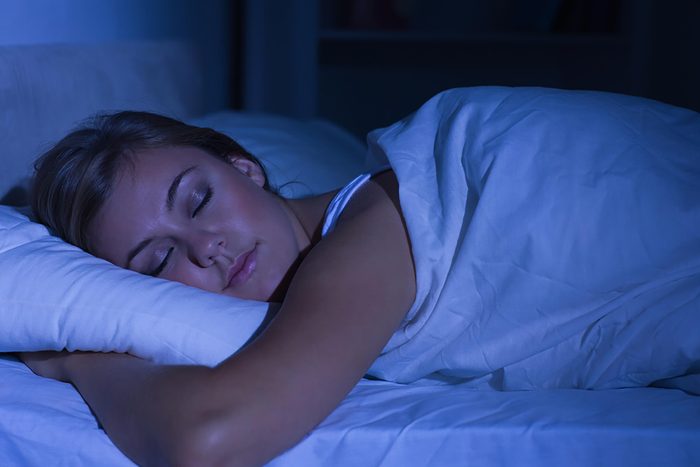
Health rule: Go to bed at the same time every night
“Sleep is a problematic area. It’s so important to get enough sleep and have a consistent evening pattern to promote good sleep, but I’m a mom! My sleep gets interrupted all the time, and when it doesn’t, I sabotage myself because it’s fun to have some awake time when the kids are asleep,” says Michelle Fogg, PT, DP.
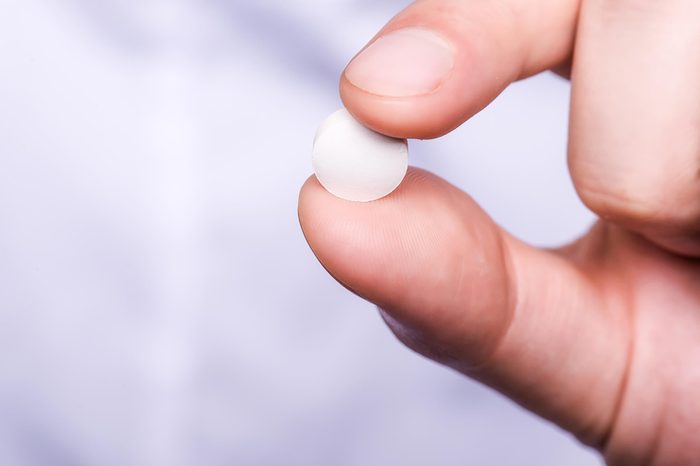
Health rule: Take a daily aspirin
“As a cardiac surgeon, I use aspirin a lot in my practice, especially for patients who’ve undergone surgery because it can help reduce the risk of blood clots. There is also clear evidence that the benefits outweigh the risks in patients with cardiovascular disease. But I wouldn’t take daily aspirin, due to the risk of gastrointestinal bleeding and other known side-effects, such as hives and swelling of the tissues. I need to see more evidence of benefits in healthy individuals before I’m convinced,” Neil Roberts, MD, 39, a cardiac surgeon at The Heart Hospital at University College Hospital, London, told the Daily Mail. (Here’s why taking a daily aspirin could be deadly.)
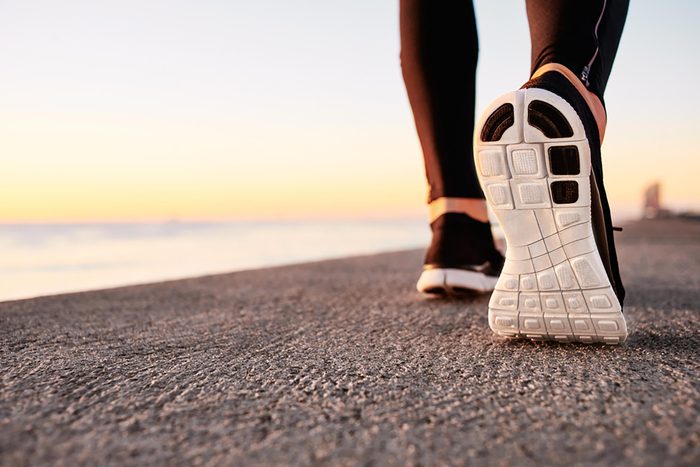
Health rule: Stick to a wellness program
“I go in cycles. I get inspired, exercise regularly, build up my running distance, be good about drinking water, and then I get tired of that and start drinking more soda than I should, and taking a break from exercise. It’s hard, almost impossible, to always be on a healthy pathway. But I think it’s okay to have those little bumps in the road as long as you get back up again,” Fogg says.
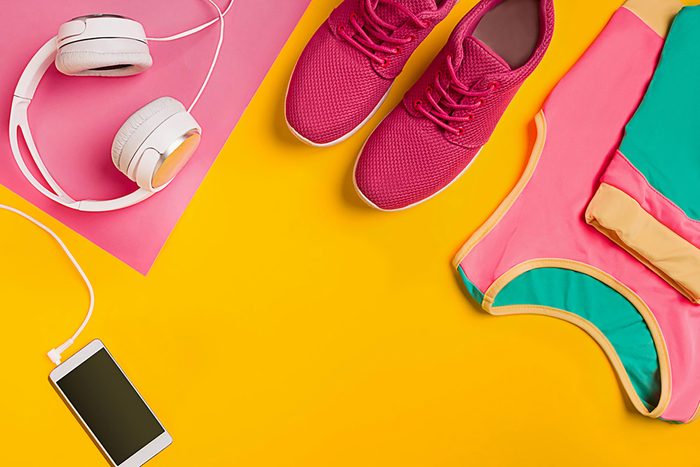
Health rule: Sleep in your gym clothes
Sleeping in your workout clothes eliminates one of the hurdles to getting out of bed and into the gym in the morning. And while lots of trainers recommend this popular hack, not all of them follow their own advice. “I like the time-saving aspect, but honestly, who wants to sleep in a sports bra?” says Erin Jones, a certified personal trainer and group fitness instructor in Portland, Ore. “Give me cozy jammies and I’ll spend the extra two minutes getting into workout clothes in the morning.” (Check out our guide to the most flattering fitness gear.)

Health rule: Take your workout gear on vacation
“I like the idea of working out when I’m away from home, but I get so little downtime that when I’m staying in a nice hotel, I often just order room service, watch cable TV, and veg out,” said Jones. “The gym will still be there when I get back.”
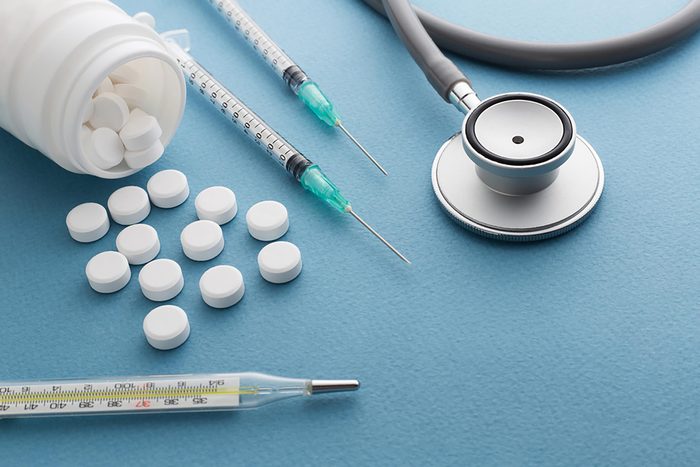
Health rule: Choose aggressive medical treatments
When doctors treat terminally ill patients, they often recommend aggressive, life-prolonging treatments that can take a toll on quality of life. When doctors become sick with the same diseases, however, a study from the Stanford University School of Medicine found that they choose much less aggressive treatments for themselves. But it’s not because the doctors are trying to make more money or bulldoze patients. According to the study, the issue is that doctors are trained and conditioned to take action, rather than to talk with, and listen to, patients in stressful and difficult circumstances.
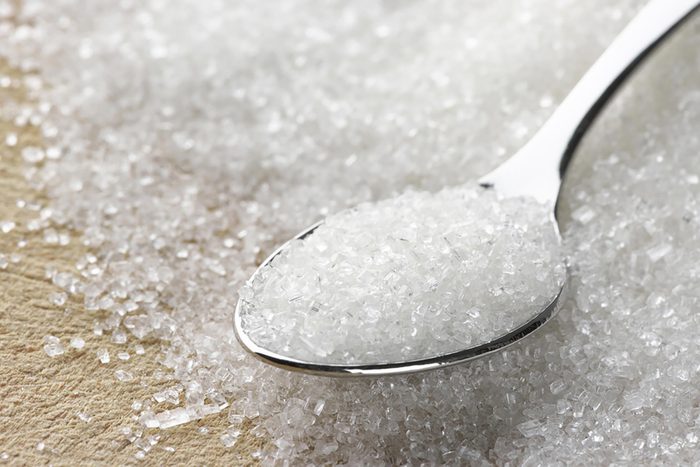
Health rule: Eliminate sugar
Most health experts recommend cutting sugar out of your diet, and for good reason. It’s been linked to heart disease, diabetes, obesity, certain cancers, and other dangerous health conditions. But even while doctors and dietitians warn about the dangers of sugar, some have as hard a time shaking their addiction as the rest of us. “I used to do five sugars in my cappuccino. Now I’m on and off coffee, but when on, I’ve weaned myself down to two,” said Martica Heaner, Adjunct Associate Professor of Nutrition at Hunter College in New York City. (Here’s how to crack your sugar addiction.)
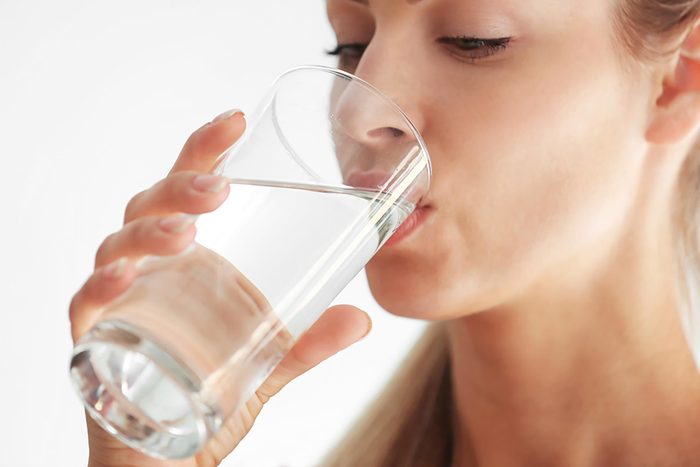
Health rule: Drink 8 glasses of water a day
We’ve all heard that in order to be well hydrated, it’s necessary to drink eight glasses of water each day. While the actual amount of water you need is up for debate, it’s universally accepted that hydration is essential for good health, and that even mild dehydration can leave you feeling sluggish and tired. If you struggle to drink enough water, however, you’re not alone. “I am permanently dehydrated and never drink water, but I recommend that you should! The only thing that makes me want to drink water is exercise,” Heaner says. These tasty water hacks will make you want to drink up.
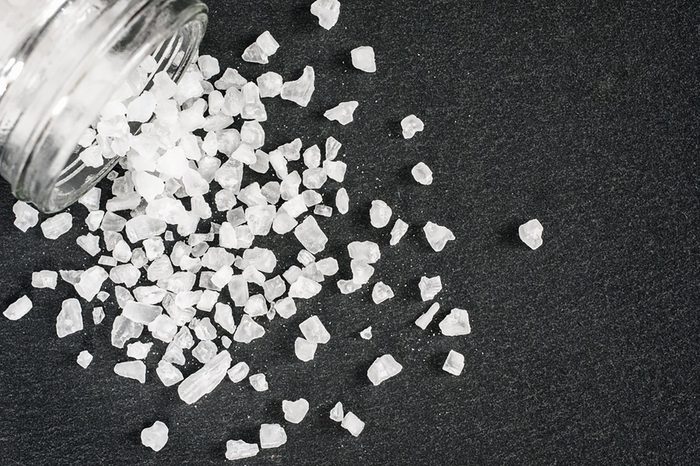
Health rule: Go easy on the salt
Even in you don’t have high blood pressure, the American Heart Association still recommends eating less sodium in order to reduce your risk of heart attack, heart failure, stroke, kidney disease, osteoporosis, stomach cancer, and even headaches. But not everybody can get on the low-sodium train. “I’m not totally anti-salt, because if you exercise you sweat it out, and if you salt your food you get less sodium than you do if you’re eating processed food. Still, I salt a lot. I should probably salt less,” Heaner says. (Here’s why salt may no longer be public enemy No. 1.)
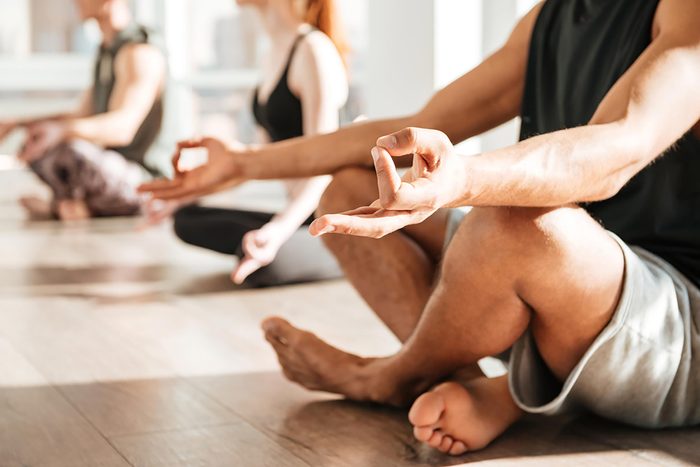
Health rule: Make time for self-care
Health professionals advocate carving out time for self-care, which just means coming up with ways to balance and neutralize stress. Self-care strategies can include exercising, meditating, coloring, or anything that that promotes mindfulness and a sense of well-being. Self-care, however, is easier said than done. “I often talk to my clients about the stress-health connection, but when things get too crazy in my life, stress management is the first thing to go,” says Julia Sarver, a holistic health coach. “I skip workouts, I forget to meditate, and I tend to rely on takeout and quick snacks more than I should. The best thing about this is that it’s a great reminder for why I eat well and make time to work out—I just feel better and can handle all the things life throws at me when I do.”
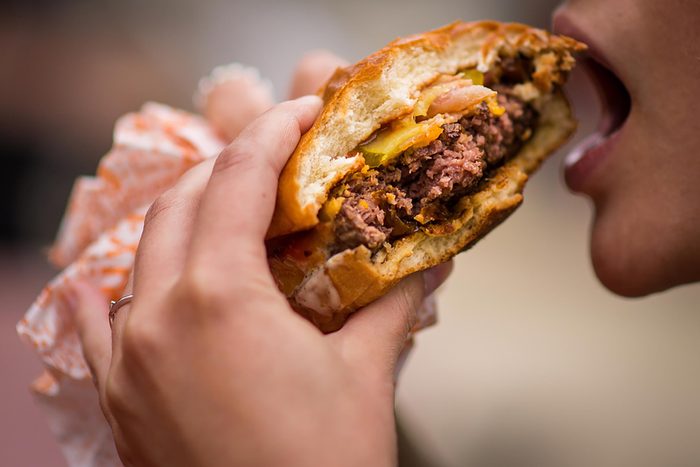
Health rule: Don’t stuff yourself like a goose
“I work with clients a lot on tuning in to their body’s hunger and fullness signals and stopping at a comfortable level of satisfaction,” says Sumner Brooks, RDN and Certified Intuitive Eating counselor. “However, there are times when I just choose to overeat. Maybe because it’s an unusual food or special occasion, or simply because I am enjoying it. When it comes to having a healthy relationship to food, which is as important as eating healthful foods, we must remember that some overeating is just part of normal eating.”
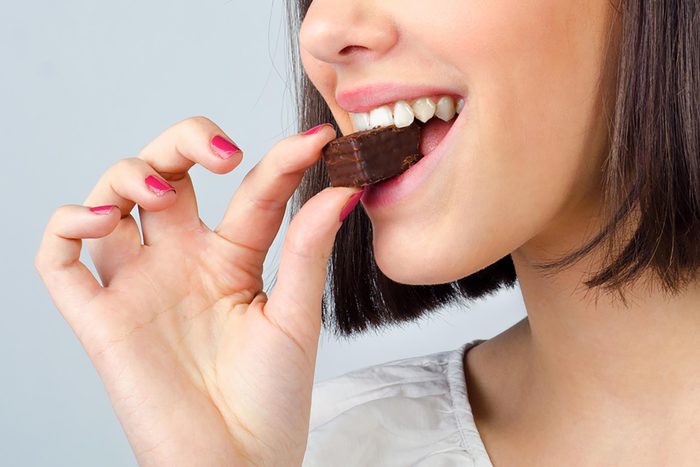
Health rule: Don’t cheat on your diet
“It’s important not to turn being mindful about hunger and fullness into a diet with strict rules, which is why I like to admit to overeating at times. We need to normalize this—not shame people for it,” Brooks says. “I try to eat in a way that is energizing, satisfying, and pleasurable, and that is what I hope to motivate my clients to do as well. We know dieting and rule-setting around how much to eat does not work for the vast majority of people, nor does it promote long-term peaceful eating.”

Health rule: Stop at one glass of wine
“The fact is, when I am recommending that my patients limit their wine to one glass per day or that they limit sugars and carbohydrates, I’m having two glasses of Riesling after dinner,” says M. Levchuk, MPH, FNP. “But my hope is that by hearing this advice from me, maybe it will actually sink in and positively influence my patients’ lives.” (Here’s what happens to your body when you drink a glass of wine daily.)

Health rule: Exercise daily
“When I advise my patients to exercise for 30 minutes each day and get a full 7 to 8 hours of sleep, I’m recalling that I haven’t been to the gym in weeks and I slept about 4 hours the night before due to work and family demands. No one is perfect, but we can certainly strive to be better,” said Levchuk.
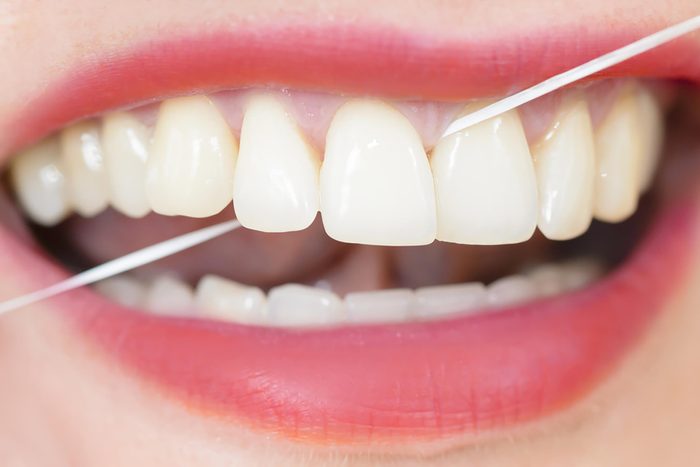
Health rule: Floss your teeth nightly
Dr. Reid Winick believes that most dentists’ advice around flossing is misguided. His take is that tooth decay and gum disease are caused by the buildup of bacteria, and that flossing can’t flush out that bacteria. “I suggest that all my patients, instead of flossing, use an oral water irrigator daily,” Winick told MindBodyGreen. (Make sure you’re not making these other dental hygiene mistakes.)
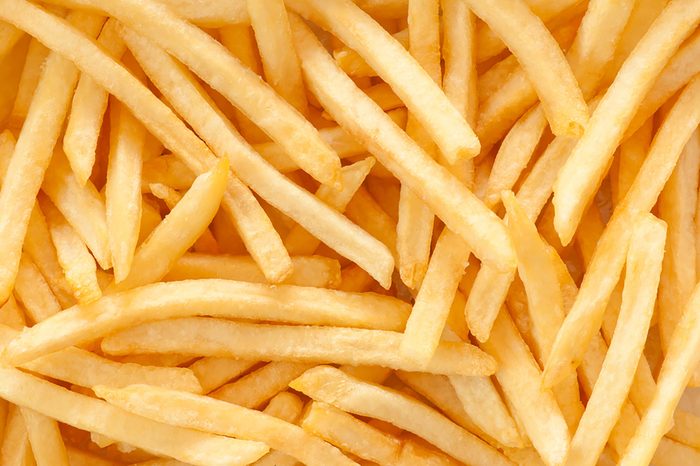
Health rule: Have a zero-tolerance policy for “bad” foods
“I actually do not believe that ‘everything in moderation’ is a good approach to eating because you end up eating [unhealthy foods that cause inflammation],” Heaner says. “It also gives you the green light to be even worse than moderate—the bar gets lowered and ‘moderate’ becomes not moderate at all. Most Americans think they eat better than they do, that they are moderating, but they eat garbage and get only 15 grams of fiber a day. So I recommend no moderation, but I don’t practice it—I ate French fries the other day.”
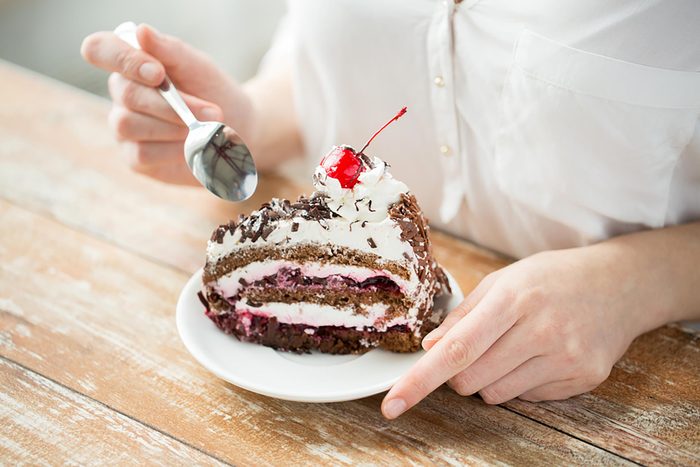
Health rule: Don’t eat your feelings
“Part of the struggle I have is that I have three kids, none of whom sleep through the night. I end up using sugar to cope emotionally,” says Alicia Hart, ND. “Sometimes I do well and sleep well and cope with green tea and ashwagandha; other times what I really need is a big ol’ frappucino from Starbucks. The more important part is that I am continuing to improve and that I’m aware of the pattern. No one is perfect all the time.”

Health rule: Avoid screen time before bed
“In my practice, I do a lot of Cognitive Behavior Therapy for Insomnia (CBT-I) and I talk a lot about good sleep hygiene practices,” Playfair says. “I often wonder if I might get better quality sleep if I avoided screen time before bed but it’s so difficult to put that phone or laptop down an hour or two before sleep. The only quiet time I get to answer emails or read is during the work day or right after the kids go to bed. So, I find myself sitting in bed, catching up on email right before sleep.”
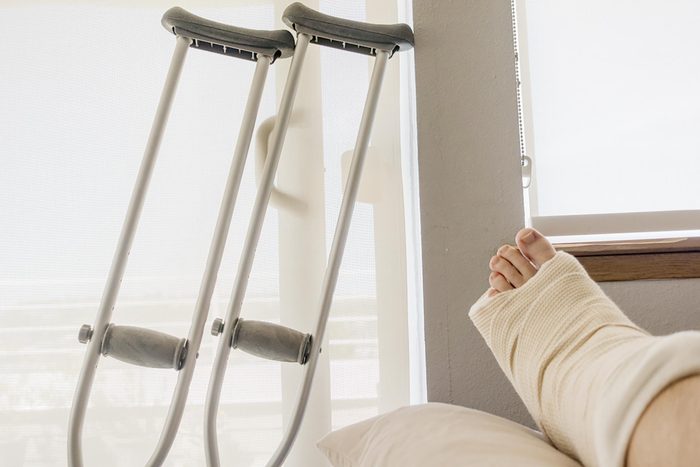
Health rule: Treat your body gently
“When it comes to injuries or recovery time, I am the first to tell my clients to rest, but I am also the first to absolutely not rest if it happens to me,” said Alexa Hasman, owner and instructor of Baby Boot Camp in Portland, Ore. “I am a running coach and would never advise someone to run a half marathon without proper training, yet it is something I will do and regret it the whole 13 miles,” she says. (Hint: Use these tips to help you train for a marathon.)
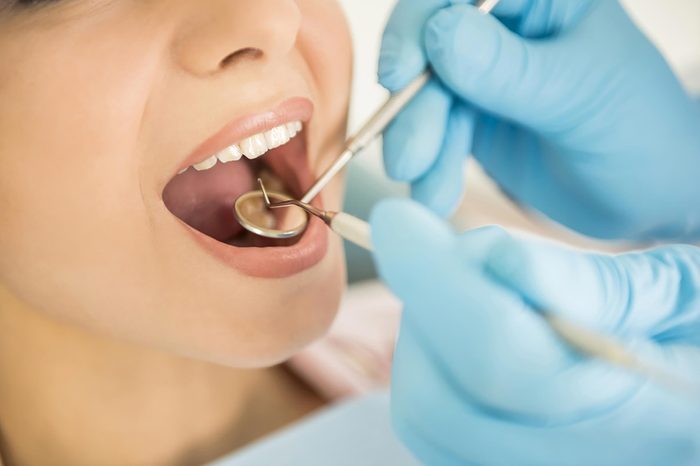
Health rule: See a dentist every six months
Most dentists urge patients to come in for a cleaning every six months, but a 2013 study published in the Journal of Dental Research found that adults in good health can get away with a single cleaning per year. “The findings suggest that for low-risk patients, a yearly prophylactic visit does prevent tooth loss over a protracted period of 16 years, and there’s no significant difference in an added visit,” said Dr. Robert J. Genco, a periodontist and SUNY distinguished professor of oral biology at the University at Buffalo, in an interview with The New York Times. (Check out the other things dentists wish you knew.)
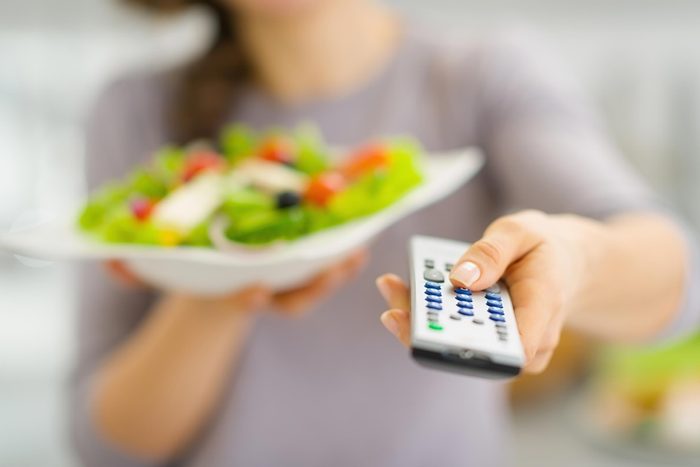
Health rule: Don’t eat in front of the TV
“Dinner is the time of day when I relax and unwind, and watching TV is part of that,” admits Dory Hansen, RDN. “I’m getting to eat something I like and that’s good for me and watch something that entertains or informs me while I decompress from my day. I’m an introvert and I spend all day, every day talking to people. Getting to sit silently and listen as other people do the talking feels kind of restorative.”
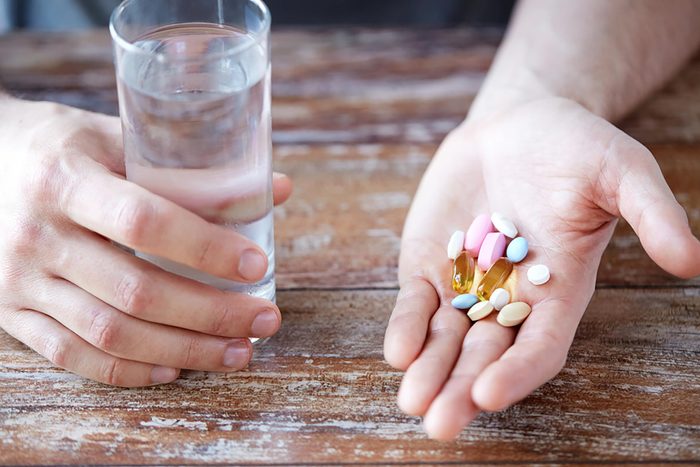
Health rule: Take vitamins
“I tell people to take their vitamins every day, and I fully intend to take my calcium and vitamin D, but I have such a hard time remembering. If I do manage to take them a few times a week, I’m pretty happy,” Hansen says. If you’re wondering, “which vitamins should I take?” Here’s what doctors secretly tell their friends.
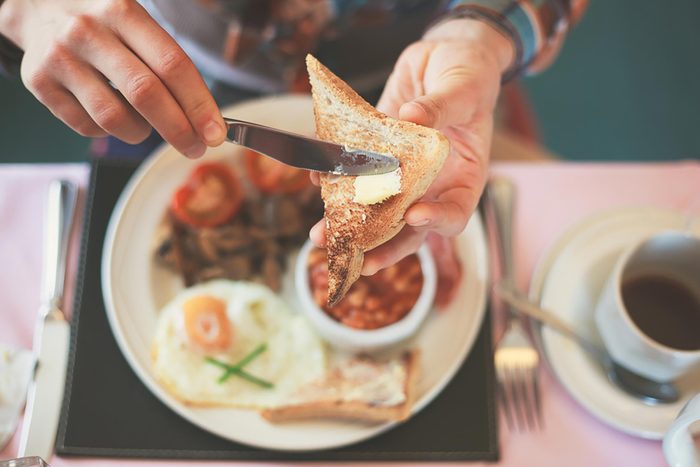
Health rule: Don’t skip breakfast
“Everybody says it’s the most important meal of the day, but I’m often not hungry first thing in the morning. I’ll often skip breakfast and save the calories for a late-morning snack or lunch,” Hansen says. Is an a.m. meal as critical as we’ve been led to believe? Here’s what the science says about the importance of breakfast.

Health rule: Prioritize postpartum recovery
“I work primarily with moms, so I am constantly stressing the importance of repairing our bodies, specifically abdominal separation. I explain it day in and day out and show women the exercises to do at home. I have a fairly large abdominal separation myself and yet I never work on it even though I know the importance and can see the effect it has on my performance every day,” Hasman says.
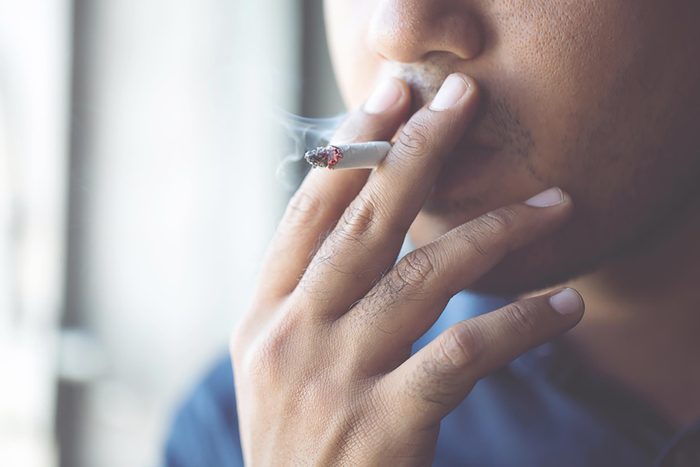
Health rule: Don’t smoke
“I smoke, but only four cigarettes a year. I’m full of flaws!” Hart says. (Here, ex-smokers reveal what made them quit for good.)

Health rule: Live a balanced life
“What’s the most common piece of advice doctors give—but don’t take themselves? Eat well, exercise, and get plenty of rest. We learn early on as physicians to put everything second to our patients and our careers. Yet this means all too often we neglect our own health and wellness. Often, we fail to see that our lack of balance affects our ability to care for patients with compassion and focus,” Dr. Atul Grover, chief public policy officer of the Association of American Medical Colleges, told The Wall Street Journal.

Health rule: Give 100 percent all the time
“I eat healthy. I exercise daily. I lecture everyone to eat their veggies. I tell my fitness classes to pick up heavier hand weights. But sometimes I don’t listen to my own advice. Healthy living shouldn’t be joyless, and if it is, then it’s time to think about the difference between restriction and balance. So enjoy that chocolate, take that rest day, opt for the two-pound weights from time to time. If you don’t expect perfection, you won’t get discouraged,” says Melanie Otis, RD, ACE.

Health rule: Shun the sun
Doctors are no better than the rest of us when it comes to avoiding harmful sun exposure, according to a study published American Journal of Health Promotion. “Given physicians’ propensity to preach the health behaviors that they practice, it is unlikely that physicians will be a force for encouraging sun-protection behavior use among their patients unless they believe in the value of sun protection behaviors and practice them routinely, or at least more frequently than their patients,” write the study authors. (These are the sunscreens dermatologists use on themselves.)

Health rule: Take the stairs
A lot of my patients are out of shape, overweight, and in pain. They know they need to exercise, but they often can’t commit to working out in a gym. I encourage them to work in exercise in small ways, by taking the stairs and parking far from the store entrance. I don’t do those things myself because I’m often in too much of a hurry. But it’s not really an issue for me because exercise is my stress relief and I’m pretty good about fitting in workouts,” says Anita Lowe, RN.

Health rule: Avoid alcohol during pregnancy
A 2010 survey asked obstetricians, “How much alcohol can a pregnant woman consume without risk of adverse pregnancy outcomes?” Sixty percent of the OBs said none, but the other 40 percent said some alcohol was fine. According to the American Congress of Obstetricians and Gynecologists (ACOG), no amount of alcohol has been shown to be safe. In contrast, the Royal College of Obstetricians and Gynecologists in the U.K. recommends avoiding alcohol, but notes that consuming “small amounts of alcohol after the first trimester does not appear to be harmful.” If you’re thinking about having an occasional sip of alcohol while pregnant, clear it with your doctor first.
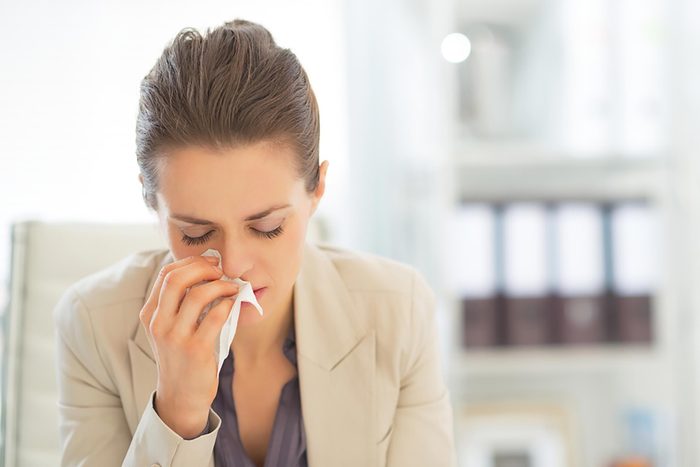
Health rule: Don’t go to work sick
According to the results of a 2015 study published in JAMA Pediatrics, many physicians and other medical professionals go to work sick, even when they know they could be putting patients at risk. In fact, 83.1 percent reported going to work sick at least once in the past year and 9.3 percent reported working while sick at least five times. Symptoms included diarrhea and fever. (Working while sick is one of the signs you could be a workaholic.)
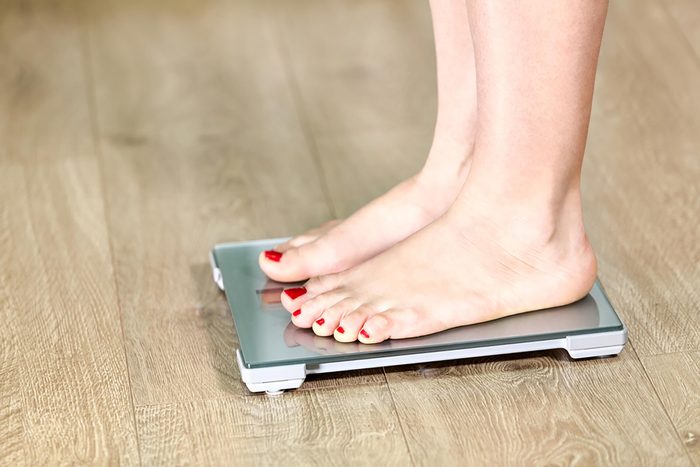
Health rule: Maintain a healthy weight
Doctors have the same rate of obesity as the general population, according to Medscape’s 2014 Physician Lifestyle Report. The report also found that most overweight or obese physicians, roughly 40 percent, eat a “typical American” diet consisting of meat and white carbs and a high amount of fat most days.
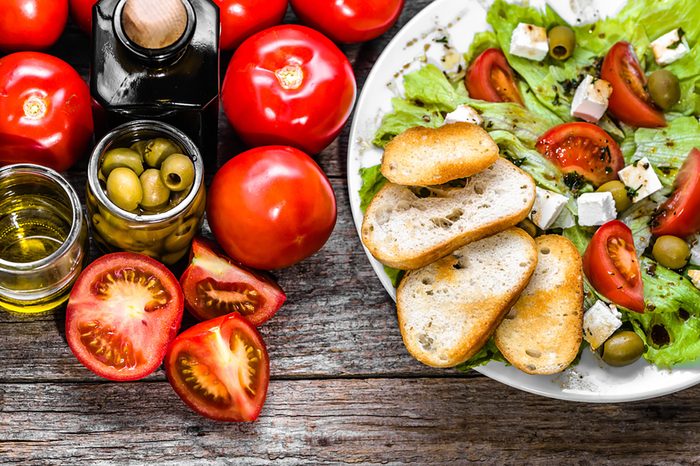
Health rule: Follow a Mediterranean-type diet
According to the American Heart Association, a Mediterranean diet rich in virgin olive oil, whole grains, legumes, lean poultry, nuts, fish, fruits, and vegetables can help the body remove excess cholesterol from arteries and reduce overall cardiovascular risk. When 2014 Medscape Physician Lifestyle Report respondents were asked which diets they routinely chose, 62 percent of normal to underweight physicians (but only 39 percent of those who are overweight or obese) indicated Mediterranean-type diets. Of the heavier group, 44 percent reported that they routinely choose either fast food or a typical American diet (meat most days; carbs most days—from white rice, potatoes, or white flour products; high fat) compared with only 28 percent of healthier-weight physicians. (Here’s how to make your diet more Mediterranean.)
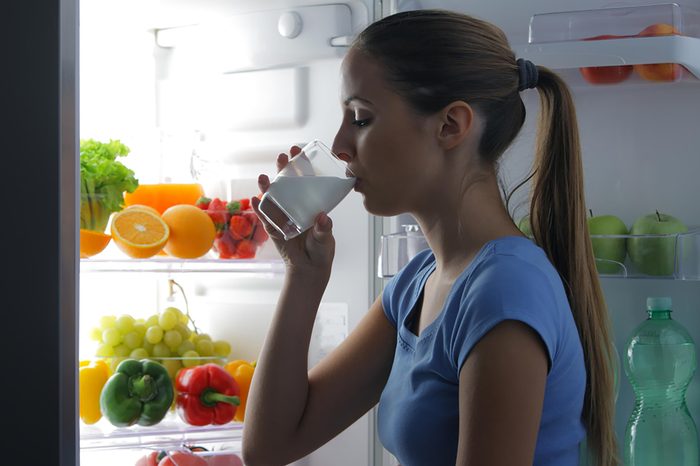
Health rule: No white at night
“I tell people to avoid white foods at night to give themselves a break from processed and overly refined foods. It’s not as hard as trying to eliminate them altogether, and I generally try to follow the advice myself. Still, I love pasta and sushi, so some nights I fall off the wagon,” Hansen says. Unfortunately, there’s lots of evidence that eating at night wrecks your health.
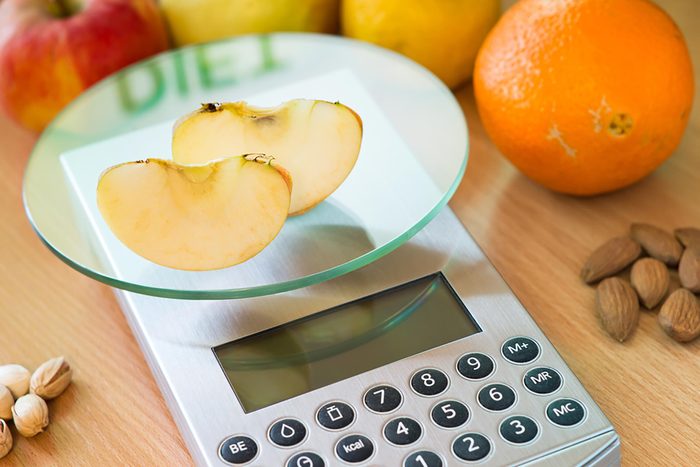
Health rule: Weigh your portions
“I recommend that people get a food scale and measure their food in order to understand what a reasonable portion size is, and avoid overeating. Do I do it myself? Nah,” Jones says.
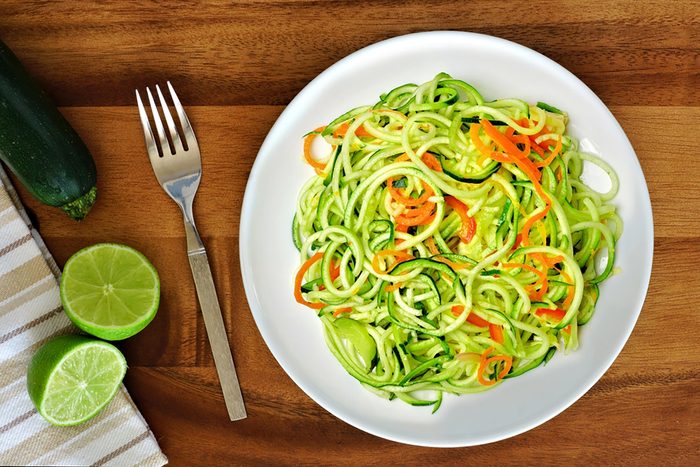
Health rule: Follow a low-carb diet
“I would never go on a low-carbohydrate, high-protein diet like Atkins, Dukan, or Cambridge. Why? Because although you will probably lose weight, it may kill you,” Tom Smith, GP, told the Guardian. “Don’t take my word for it—read about the 43,396 Swedish women followed for an average of 15 years. Those who stuck to low carbs and high protein had a rising risk of dying from heart attacks and strokes, depending on how strict they were and for how long they endured them. There was a staggering 62 percent higher risk of such illnesses among the women eating the strictest diet compared to those who ate normally. Eating is for enjoyment; these diets turn food into medication, and it’s patently the wrong medicine—it is often lethal.” (Don’t fall for these low-carb diet myths.)
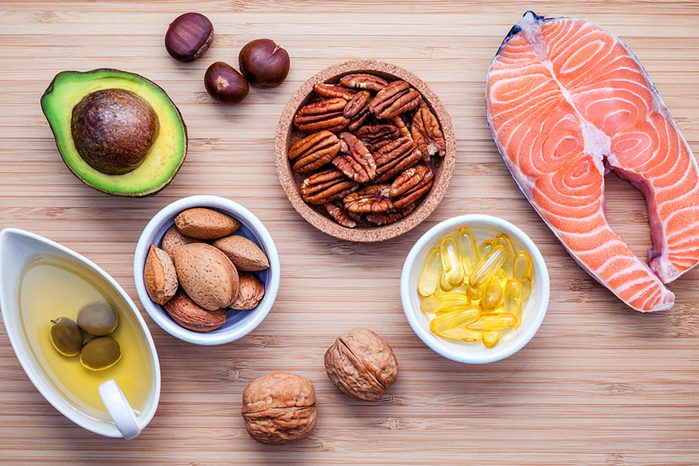
Health rule: Get essential nutrients from food
“Although food should always come first, I ignore the advice about not needing a multivitamin and mineral supplement, and choose to take one,” said Sarah Brewer, MD, in an interview with the Mirror. “Nine out of 10 women and 8 out of 10 children don’t get enough iron. More than a third of women are low in vitamin A, calcium, magnesium, zinc, copper or iodine, while 1 in 4 adults has blood levels of vitamin D that are too low.” (Should you get your vitamin D levels checked?)
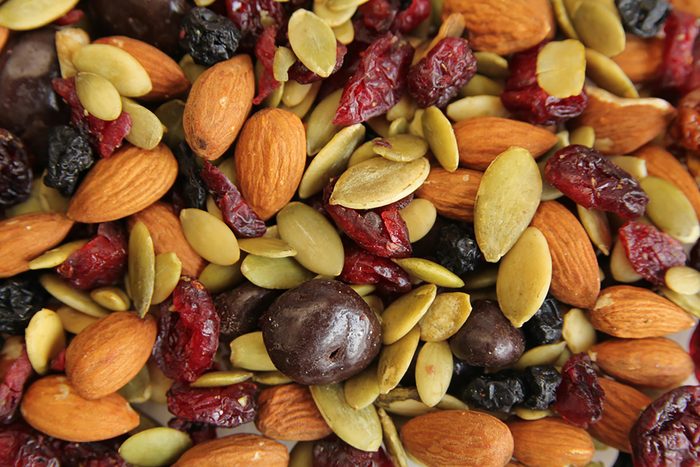
Health rule: Pack healthy snacks to avoid binges
“I often tell people to toss a baggie of almonds and a piece of string cheese or fruit in their bag when they’re heading out the door, but it’s something I rarely remember to do myself. Instead, I go too long without eating and I’m ravenous by the time I get home,” Jones says. (These are the on-the-go snacks nutritionists carry in their bags—when they remember.)

Health rule: Avoid temptation
I love exercising, but I’m awful at eating healthfully. I love cookies and fancy coffee! So I feel awfully hypocritical when I talk with my patients about nutrition and hydration,” Fogg says. (You don’t have to feel guilty about eating these healthy chocolates.)
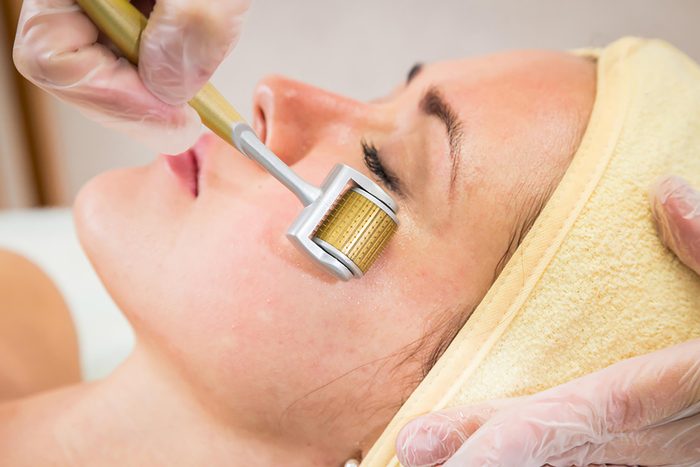
Health rule: Try permanent fillers for wrinkles
“I’d never have a permanent filler injected into my skin to plump out my wrinkles. They’re made from substances the body doesn’t recognize and can cause an immune response as the body tries to protect itself. Unlike temporary fillers, which are made from naturally occurring substances, such as hyaluronic acid, which the body breaks down over time, permanent fillers remain in the body forever,” said Natalie Blakely, MBBS, mBCAM, in an interview with the Mirror.
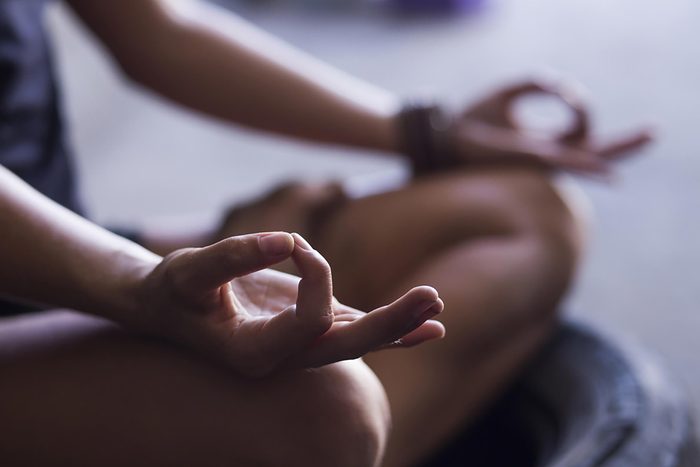
Health rule: Meditate
“I recommend meditation because it has so many benefits for physical and mental health. Do I do it myself? Not really. I do lots of things that I consider meditative, such as knitting and even washing the dishes, but I don’t strictly meditate,” says Lowe. (These are the compelling benefits of meditation.)

Health rule: Get regular mammograms
“I won’t go for a mammogram screening. Down the microscope, doctors can’t always tell the difference between ‘dangerous’ and ‘OK to leave alone.’ So it is possible to find things ‘too early’ that are not really life-threatening cancer,” said Susan Bewley, Professor of Complex Obstetrics, King’s College London, in an interview with the Guardian. “I’m happy to wait until I have symptoms.” Do you need a mammogram or not? Get the facts about the new mammogram guidelines.

Health rule: Don’t drink soda
“Travel, spicy food, no sleep—these are my Coke triggers, where I just want one swig of black gold to make me happy. I am notorious for every now and then opening a can—pouring out one-eighth of a glass and dumping the rest—enough for a moment of happiness!” admits Tasneem Bhatia, MD, in an interview with Eat This.
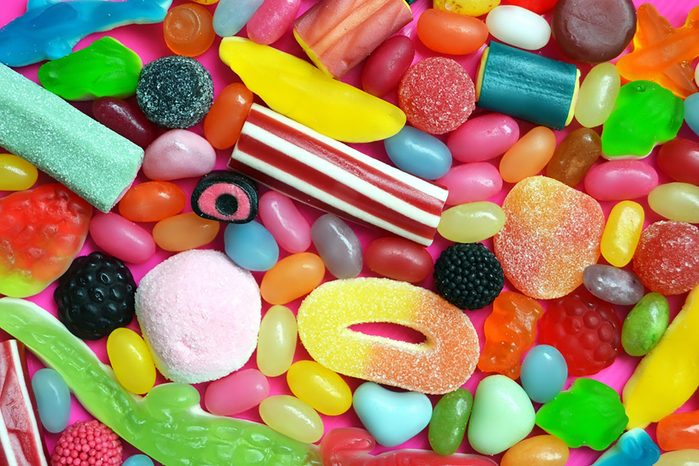
Health rule: Keep your sweet tooth in check
“I eat right and exercise, but if I’m in a bad mood or stressed out about something, my sweet tooth takes over. I love Skittles, gummy bears, and Starbursts, but I only buy the small packages of them at a time so I can’t do too much damage,” Hansen says.